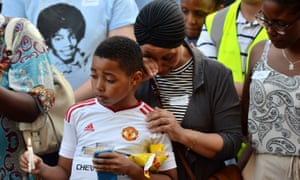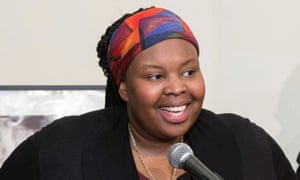{UAH} This was a monstrous crime – there must be arrests after Grenfell Tower
Don't let them tell you it's a tragedy. It's not a tragedy, it's a monstrous crime. Corporate manslaughter. They were warned by the residents that there was an obvious risk of catastrophe. They looked the other way. We don't need another review kicked into the long grass and years of equivocation– what a civilised country should demand is arrests and a criminal trial before a judge and jury.
Where is Khadija Saye? A beautiful young woman, a hugely talented emerging artist whom my wife mentored and who had become a part of my family. She is just one of many human stories emerging from the disaster wreaked on Grenfell Tower. I have heard nothing since her Facebook post from 4am on Wednesday reading: "Please pray for me and my mum. Just tried to leave, it's impossible." I fear she may have perished in the inferno on the 20th floor.
Today people are waking up in community centres and church halls with nothing but the clothes on their backs. These are people who have lost everything – their homes, their possessions and even their identities and bank cards. As was the case after the 2011 riots in my constituency of Tottenham, and long after the news cycle has moved on, it will be the state that will rehouse and support them as they pick up the pieces and rebuild their lives from nothing – a process that will take years, and in many cases will never truly be complete.
The faces of Grenfell Tower victims are the faces of the residents of tower blocks across Britain: working-class, poor and often reliant on the state for their housing and safety. Yet for decades we have been pushing the state out and bringing the private sector in. We privatise profits for shareholders, but it is the insurance policy the state provides that lets them get away with it, always stepping in when the failures of the private sector spill over.
When we privatise hospital cleaning, we get MRSA. When the private sector fails to build affordable housing, the taxpayer foots the bill through soaring housing benefit costs. This week we got firefighters running towards a burning building following serious shortcomings on the part of a landlord.
This goes way beyond party politics and left v right. In 2017 we have to ask serious questions about what we have become when refurbishments were made to the outside of Grenfell Tower last year at great expense, as much to improve the view from the luxury flats that have been built around it as to improve conditions for residents. In one of the country's richest boroughs there could be no starker encapsulation of the grotesque inequalities that plague our capital city.
Revisit the public inquiry after the Summerland disaster of 1973, the same year Grenfell was put up. In a leisure centre in the Isle of Man, 50 people lost their lives. The building was metal-clad and the metal was coated with plastic bitumen, which accelerated the rapid spread of the flames.
There are 700 tower blocks of 11 storeys or more in the capital alone, the vast majority of which were built in the 1960s and 1970s. The conditions in Grenfell Tower are mirrored in housing estates across the country.
I was on the Broadwater Farm estate in Tottenham last week on the eve of the general election, knocking on doors in Kenley Tower and reflecting on how little has changed since I was a young boy marauding around the estate with my cousin.
For decades we have consigned people to live in overcrowded conditions that are not just unacceptable but that, in many cases, are criminally unsafe. Families live in hutches, not houses. Plywood walls divide rooms in homes that were designed for families of three but are now occupied by six or more.
Back in Dickensian Britain, a letter printed in the Times in 1849 warned that whole swaths of Londoners were "living in a wilderness, so far as the rest of London knows anything of us". Plus ça change. Successive governments have condemned the vulnerable and the voiceless to Corbusier-inspired blocks to which few improvements have been made since they were built half a century ago. Planners, politicians and property developers have never seen London from the heights – or when it comes to living conditions, the depths – of the capital's worst homes.
Cutting council budgets by 40% has consequences far beyond street cleaning or libraries. Local authorities have been starved of the resources they need to refurbish council properties, and we have increasingly seen the management and upkeep of homes passed to arm's-length bodies and the private sector. If local authorities are unable to hold property management companies to account, debates about the rights and wrongs of housing policy have overnight become urgent questions about public safety.
In every borough in the country there will be a tower block or council estate just like Grenfell. Why do we care about how these people live only when tragedy erupts into the public psyche? If the preventable deaths of people burning in their homes are not a matter for the police then what is?
If past disasters have taught us anything, it is that things change only when powerful people are put in the dock. So, for the sake of the victims, call it what it is: a crime of the most horrendous kind.
Disclaimer:Everyone posting to this Forum bears the sole responsibility for any legal consequences of his or her postings, and hence statements and facts must be presented responsibly. Your continued membership signifies that you agree to this disclaimer and pledge to abide by our Rules and Guidelines.To unsubscribe from this group, send email to: ugandans-at-heart+unsubscribe@googlegroups.com






0 comments:
Post a Comment